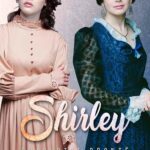Blanche Ingram in Jane Eyre
Blanche Ingram emerges as a significant figure in Charlotte Bronte’s classic novel Jane Eyre, providing a stark contrast to the story’s protagonist. As a beautiful and socially adept woman, Blanche is often perceived as a fitting match for the enigmatic and brooding Edward Fairfax Rochester. Her character is flawlessly crafted as a foil to Jane Eyre’s more modest and unassuming nature. Ingram’s interactions with Rochester and her influence on the narrative are pivotal in developing the central romantic storyline.
In the novel, Ingram is portrayed as a character from the upper echelons of society, possessing both the grace and accomplishments expected of a woman in her position. However, her relationship with Rochester is colored by socioeconomic considerations rather than genuine affection. This raises questions about the social dynamics of 19th-century England, particularly in terms of marriage and class.
The dynamics between Ingram, Rochester, and Jane are intricate and tell a broader story about class distinctions, gender expectations, and the pursuit of true love versus advantageous alliances. Bronte uses Ingram’s character not only to highlight Jane’s virtues but also to challenge the protagonist to reexamine her feelings for Rochester and her self-worth. Ingram’s role in the narrative and the themes she embodies are thus central to understanding the deeper complexities of Jane Eyre.
Recommended: Read Jane Eyre at PageVio
1. Blanche Ingram Character Analysis
Blanche Ingram is a pivotal secondary character whose interactions and persona significantly influence the main narrative and its themes.
Role in “Jane Eyre”
Blanche Ingram is introduced as a potential suitor for the wealthy Edward Rochester. Her presence in the story is pivotal for developing the romantic tension between Rochester and Jane Eyre, the protagonist.
Interactions with Key Characters
Blanche frequently interacts with Mr. Rochester and Jane Eyre. Her behavior toward Rochester reflects a woman seeking to secure a marriage based on wealth and fortune rather than affection. To Jane, Blanche is cold and disparaging, embodying the qualities of a snob who looks down on those below her social standing.
Societal Position and Personality Traits
The daughter of a noble family, Blanche Ingram, is accustomed to a life of privilege and wealth. She is described as beautiful and possessing a cold and calculating personality. Blanche’s attitude and snobbish behavior signify her as a classic gold-digger, appearing to be more in control of her emotions compared to her suitors.
Ingram’s Impact on the Plot
Blanche Ingram’s pursuit of Rochester heightens the jealousy and tension Jane feels, propelling the story forward. Blanche’s failure to secure a marriage due to selfish motives contrasts with Jane’s humility and principles, underscoring key themes of love versus social status.
Comparative Analysis
Compared to Jane Eyre, Blanche Ingram’s presence highlights the stark differences between their characters. Jane is modest, empathetic, and principled, while an outward fixation on beauty, wealth, and social rank marks Blanche’s character. This contrast emphasizes the purity of Jane’s love for Rochester against Blanche’s self-serving ambitions.
2. Ingram’s Literary Significance and Themes
Blanche Ingram is a pivotal contrast to Jane, elucidating themes of social class, marriage, ambition, and gender roles. Her interactions and intentions underscore key aspects of Victorian society and personal agency within the novel’s narrative structure.
Representation of Social Class and Marriage
Blanche Ingram epitomizes the Victorian era’s societal norms and expectations of marriage. She is characterized by a bold yet calculated pursuit of Mr. Rochester for his fortune. Ingram’s behavior underscores the era’s mercenary approach to marriage, where wealth and social class were often valued over genuine love. She highlights the disparities faced by governesses like Jane, whose prospects are limited by status and money.
Consequences of Ingram’s Ambitions
Ingram’s ambitions reveal the potential consequences of prioritizing status and wealth over personal connection. Her cold demeanor and selfish desires for control ultimately leave her frustrated, showcasing the peril of such a trait to personal happiness. Ingram’s pursuit of fortune through marriage is depicted as a flawed strategy, potentially leading to isolation and disappointment.
Ingram’s Influence on Jane’s Character Arc
Ingram’s character challenges Jane’s self-esteem and attitude towards love and marriage. Observing Ingram’s attempts to marry Rochester, Jane initially feels jealous and inadequate due to her plain appearance and modest status. However, this also propels Jane to contemplate her values, leading her to affirm her desire for a pure, emotional connection over material gain, thus progressing her character arc.
Critical Reception and Analysis
Critics often regard Ingram as a critical figure in understanding the novel’s third story, the psychological exploration of the characters. Her beauty and dominant personality have been analyzed in contrast to Jane’s more introspective nature, offering a form of external pressure that tests Jane’s resolve. Ingram’s role in the love triangle also provides readers with a lens into Victorian marriage markets, where women like her were often seen as gold-diggers or snobs.
Ingram and Feminist Interpretations
Feminist analyses of Jane Eyre have scrutinized Blanche Ingram’s portrayal as a product of her societal conditioning and an individual with agency. On the one hand, her attitude problem and snobbish behavior could be seen as a reaction to the convent of a marriage-focused society that expected women to secure their future through strategic unions. Conversely, Ingram’s assertiveness and unapologetic quest for a marriage that provides security and power could be considered a form of feminist assertion of agency within the constraints of her time.
| Jane Eyre Characters List | |
| Characters Analysis | Jane Eyre | Edward Rochester | Bertha Mason | St. John Rivers | Helen Burns | Diana and Mary Rivers | Mr. Brocklehurst |




